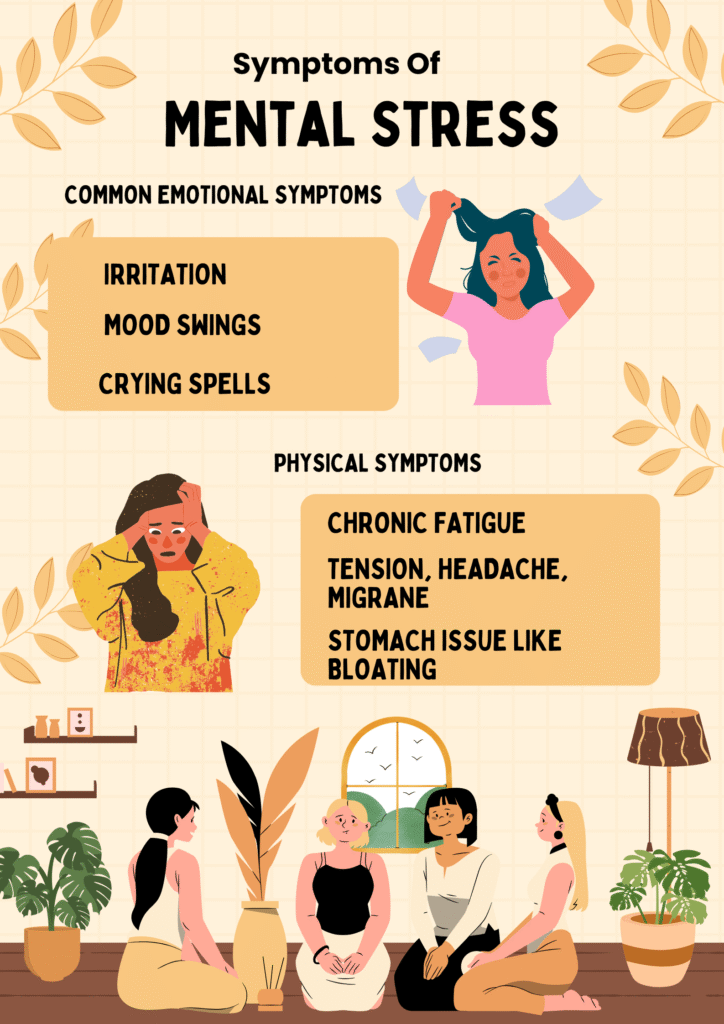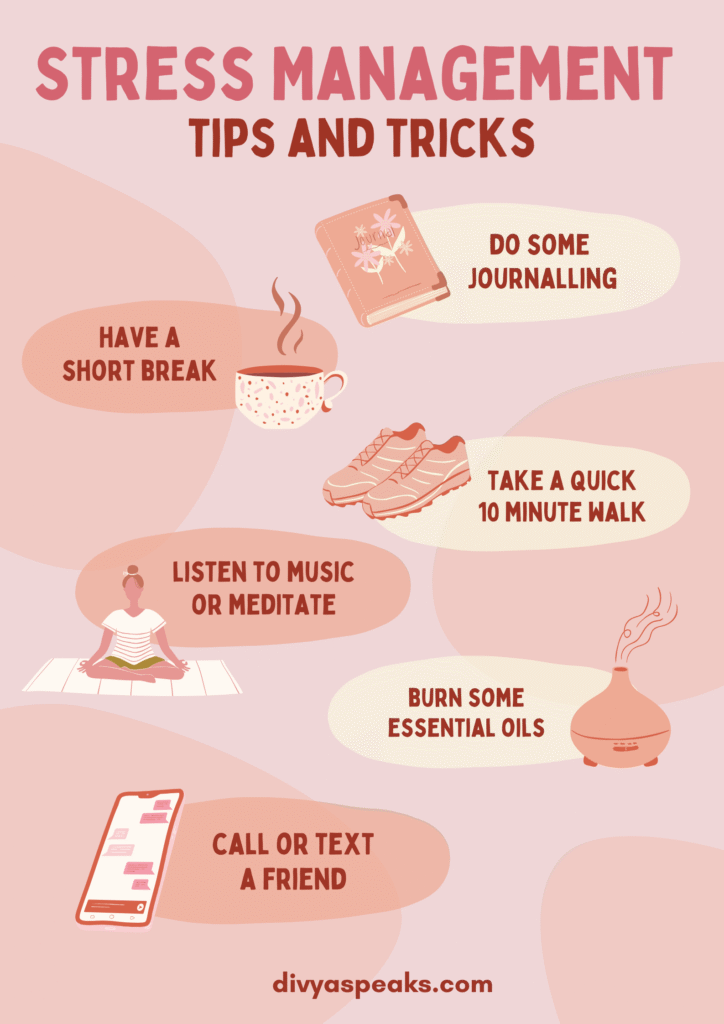Mental stress in women is an ever-growing concern that often goes unnoticed, unaddressed, or minimized. As societal expectations, work-life responsibilities, and emotional burdens continue to evolve, women stress has reached critical levels that impact both physical health, mental well-being, and long-term life quality. In this article, we can discuss the underlying causes of stress in women, its symptoms, and the most effective strategies for coping with stress naturally and sustainably.
What Is Women Stress and Why It’s Different
Women play major role as Mother, Professionals, Caregivers, spouse which leads to an emotional load that builds over time. Stress affects everyone, but the way it manifests and impacts women is different due to biological, hormonal, and social differences. Hormonal fluctuations such as menstruation, pregnancy, and menopause can intensify stress responses.
Key Stress Triggers in Women:
- Workplace Pressure and Gender Inequality
- Relationship Conflicts and Emotional Labor
- Parenting Responsibilities and Caregiving
- Body Image Issues and Societal Expectations
- Financial Struggles and Career Advancement
Understanding these triggers is essential in tailoring tips for mental stress that are effective and relevant.
Signs and Symptoms of Mental Stress in Women
Early detection of stress symptoms can help prevent long-term consequences like anxiety, depression, heart disease, or burnout. Women may exhibit a mix of emotional, behavioral, and physical signs. Effectively communicate your Mental Stress with your doctor, family members. Discuss more detail about your stress, how you’ve been feeling, what’s been going in your life, any specific symptoms youre experiencing.

Common Emotional Symptoms:
- Irritability, mood swings, or crying spells
- Feeling overwhelmed or constantly anxious
- Difficulty focusing or making decisions
Physical Symptoms Include:
- Chronic fatigue or insomnia
- Tension headaches or migraines
- Stomach issues like bloating or nausea
- Changes in appetite or weight
Recognizing these indicators is the first step toward coping with stress effectively.
Hormonal Imbalance and Women Stress
Hormones like estrogen and progesterone play a significant role in mood regulation. Fluctuations during menstrual cycles, pregnancy, or menopause can worsen stress levels. Women stress is closely linked to hormonal health, and addressing imbalances can substantially reduce stress symptoms.
What You Can Do:
- Track hormonal cycles using apps or journals
- Maintain a consistent sleep and meal schedule
- Consider natural supplements like magnesium or omega-3s (after consulting a healthcare provider)
Proven Tips for Mental Stress Management
The following science-backed tips for mental stress can be transformative when practiced consistently:
1. Prioritize Self-Care Without Guilt
Women often put everyone else’s needs first. Reclaiming time for self-care is essential.
- Take regular breaks, even short 10-minute walks
- Practice mindfulness or meditation daily
- Read, write, or engage in hobbies you love
2. Create Healthy Boundaries
Learn to say no without feeling guilty. Setting boundaries protects your mental energy.
- Avoid toxic conversations or environments
- Limit exposure to social media stress
- Set firm work-life separation, especially when working from home
3. Physical Activity: The Ultimate Stress Reliever
Exercise boosts endorphins and improves hormonal balance.
- Aim for 30 minutes of movement daily—yoga, walking, dancing, or strength training
- Stretch in the morning to release physical tension
4. Nourish Your Body to Heal the Mind
A poor diet can intensify women stress levels. Opt for foods that stabilize blood sugar and enhance mood.
- Include leafy greens, whole grains, berries, and lean proteins
- Avoid excessive caffeine, sugar, and processed foods
- Stay hydrated throughout the day
5. Get Quality Sleep Every Night
Sleep is where your body repairs both mentally and physically.
- Establish a bedtime routine with screen-free time
- Use lavender oil or soothing music to relax
- Avoid stimulants like caffeine after 3 p.m.
The Role of Social Support in Coping with Stress
A strong support system is a powerful buffer against chronic stress. Having someone close to you, talking with them, sharing responsibilities with them, or simply spending quality time can significantly uplift mental well-being. Connect with a trusted loved one or close friend when you feel overwhelmed.
Effective Social Support Strategies:
- Join women’s support groups, either locally or online
- Regularly connect with friends and family
- Seek professional therapy when needed—it’s a sign of strength, not weakness

Mindfulness and Meditation: A Reset for the Brain
Practicing mindfulness can rewire the brain to respond more calmly to stressful situations. It helps develop emotional resilience and provides a break from the chaos. Mindfulness encourages individual to pay attention on their body needs, which will help to identify stress effectively
Daily Mindfulness Practices:
- Begin the day with a 10-minute breathing session
- Use journaling as a tool for emotional release
- Practice gratitude by listing three positive things daily
Holistic Remedies and Natural Solutions
If you’re looking for natural ways to reduce women stress, consider these holistic approaches:
- Aromatherapy with essential oils like chamomile, lavender, or ylang-ylang
- Herbal teas such as ashwagandha, lemon balm, or valerian root
- Acupuncture or reflexology to balance body energy
Always consult with a healthcare provider before trying new supplements or therapies.
When to Seek Professional Help
If stress is affecting your daily functioning, it’s time to consult a mental health expert. Chronic stress can lead to serious health issues like:
- Clinical depression
- Anxiety disorders
- Hypertension or cardiovascular disease
Psychologists, counselors, or psychiatrists can provide cognitive behavioral therapy (CBT), medication, or other tailored solutions for coping with stress effectively.
Empowering Women to Take Control of Their Mental Health
At the heart of stress management is empowerment. When women prioritize their health—mentally, emotionally, and physically—they are better equipped to handle life’s challenges. Understanding the causes of women stress and applying proven, practical strategies allows women to reclaim balance, joy, and purpose.


2 thoughts on “Understanding Women Stress and Effective Ways to Overcome It”